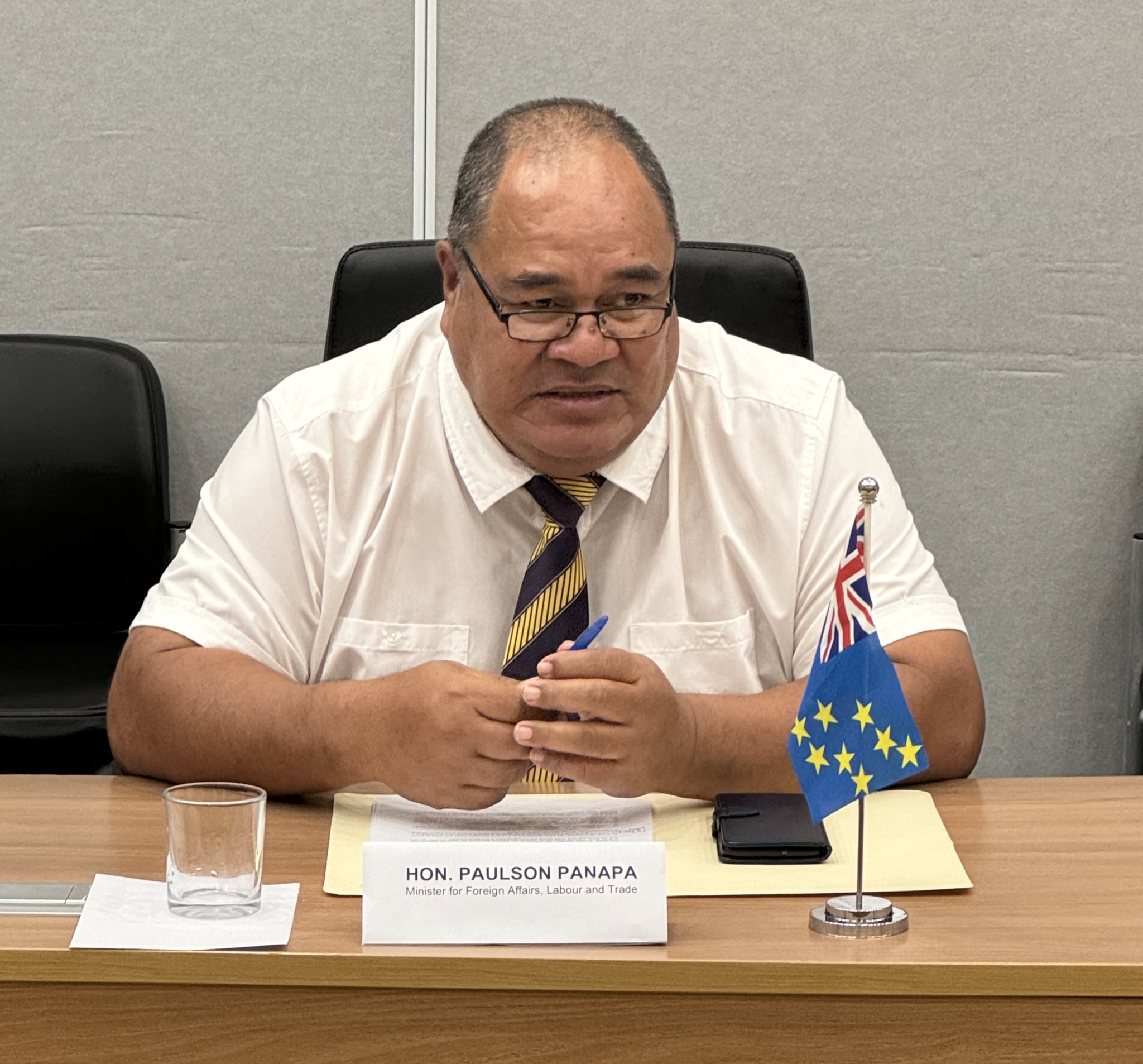Tuvalu’s Minister for Foreign Affairs, Paulson Panapa, has called for urgent investment and action to launch the Pacific Resilience Facility (PRF), highlighting the existential threat climate change poses to Pacific nations like Tuvalu.
“It’s my pleasure to bring Tuvalu’s voice to this special PRF side event.
“We fully align with the decision to headquarter the PRF in Tonga and congratulate the Kingdom of Tonga on this milestone,” Panapa said at margins of the Forum Leaders Meeting in Nuku’alofa on Thursday.
Panapa painted a stark picture of the climate crisis facing his country.
“As our Prime Minister said, Tuvalu is literally on the front line of the impacts of climate change,” he stressed.
“By 2050, nearly half of our lands will be inundated by regular tidal flows and almost fully submerged by 2100. This is a threat to our communities, our identity, and our way of life—not just for us today, but for generations to come.”
He praised the PRF as a crucial step towards climate resilience in the region.
“The PRF is a very important demonstration of transformative resilience,” Panapa explained. “This is an idea whose time has come. The PRF is ours—Pacific-led, owned, and managed—for us, by us, with us.”
However, Panapa emphasised that time is of the essence.
“We note that this initiative has been going for seven years now, and the PRF will be ready to make grants by 2026,” he said.
“It will be almost a decade by the time we get this off the ground. The decision Pacific leaders have made on the legal hosting of the PRF is a huge milestone, but we must move faster.”
Looking to the future, Panapa challenged the region to consider what the PRF could achieve in the next 50 years.
“One thing is for sure: US$500 million is not enough,” he stated.
“We call on our partners to help us reach that target sooner rather than later. Then, as echoed by our Prime Ministers and fellow ministers, we scale up to US$1.5 billion for a 1.5-degree world.”
Panapa’s statement highlighted the urgency for Pacific nations to secure robust financing to combat climate change and safeguard their future.














